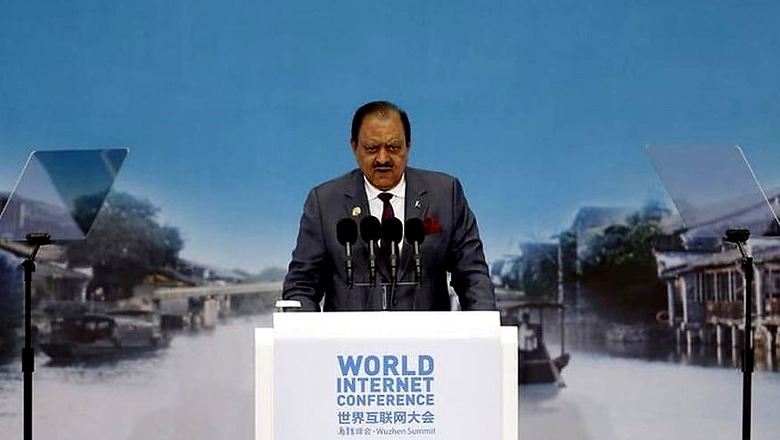
views
Islamabad: Pakistan's controversial special military courts to try hard core militants were revived on Friday for a period of two years after President Mamnoon Hussain gave his assent to the bill amid a surge in terror attacks across the country.
Hussain signed Pakistan Army Act 2017 and the 28th Constitutional Amendment Bill, which were passed separately by the National Assembly and Senate this month.
The military courts were set up in January 2015 after a Taliban attack on an army school killed 150 people, mostly children. The court's tenure, initially set up for two years, expired on January 7, 2017.
Since then, the Pakistani government was trying to convince the opposition for another two years term for the speedy trial of hard core terrorists as they played an extremely important role to combat extremism.
The new laws provide that a militant on trial can hire a lawyer of choice and also appeal to the high courts against the decision of military tribunals. Rights bodies and legal fraternity have criticised the military courts as violation of fundamental rights of the people.
"Military justice is justice denied and military courts have never been, nor will be, the answer to terrorism," said Rasheed Rizvi, president of Supreme Court Bar Association (SCBA).
Speaking at a ceremony held in honour of the superannuation of Justice Amir Hani Muslim, Rizvi recalled Cicero's 'maxim, summum ius summa iniuria', which literally means "extreme law, extreme injustice", the Dawn reported.
"My lords, it is with regret that we note that the two years of military courts have not proved enough," deplored the SCBA chief, who represents the country's most prestigious body of lawyers who practise in the Supreme Court. Army had demanded to revive the courts for another two years to try more militants and punish them.
The constitution amendment bill seeking extension of military courts was presented in the National Assembly on March 20.
The primary concern of critics was the mystery surrounding military court trials: no one knows who the convicts are, what charges have been brought against them, or what the accused's defence is against the allegations leveled.
Proponents say the courts act as an "effective deterrent" for those considering violent acts. The court are run by the military officers and operate in secrecy due to fear of backlash by militants. The courts were given 275 cases during two-year and they sentenced 161 terrorists to death, whereas another 116 were given varying jail terms, mostly life sentences.




















Comments
0 comment